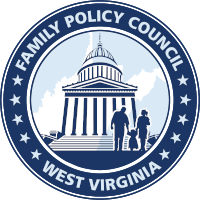West Virginia and the broader United States are facing a child welfare crisis — one that cuts to the core of who we are as a society. Across the nation, and particularly in our state, the safety and dignity of children are being compromised by legal frameworks that fail to treat crimes against minors with the seriousness they deserve. Weak state penalties for child abuse and exploitation are creating a dangerous vacuum — one in which justice is too often delayed, diminished, or denied.
In West Virginia, current laws lag far behind what is necessary to protect our most vulnerable citizens. Child abusers and sexual predators often receive light sentences, sometimes walking free in mere years — or even months — after committing life-altering crimes. The failure to adequately punish these crimes sends a dangerous message: that the lives and futures of children are negotiable, and that their suffering carries limited consequence under the law.
This systemic failure has forced federal prosecutors to take the lead in many cases, leveraging harsher federal penalties because state laws fall short. When crimes against children are committed — whether it’s sexual abuse, trafficking, or exploitation — the federal justice system is too often the only venue where serious justice is served. This is not how our system should function. West Virginia should not rely on Washington to defend its children. We must act locally, and we must act urgently.
Lawmakers need to recognize that this isn’t just a legal issue — it’s a moral crisis. Criminal degeneracy, especially when targeted at children, destroys families, burdens communities, and leaves deep scars across generations. Penalties should reflect that gravity. This means increasing minimum and maximum sentences for child sexual abuse, strengthening mandatory reporting requirements, closing loopholes that allow repeat offenders to slip through the cracks, and providing adequate resources for law enforcement and child protection services.
Detractors may argue that harsher penalties will not deter all offenders, but deterrence is only one component of justice. Sentencing should also reflect the value we place on the life of a child — and our commitment to ensuring such acts are met with consequences proportionate to their evil. Moreover, stronger laws can prevent future harm by ensuring dangerous individuals are kept away from potential victims.
West Virginia has the opportunity — and the obligation — to lead. Our state’s long-standing commitment to family values must now be demonstrated through decisive legislative action. Protecting children is not a partisan issue. It is a human one. By strengthening our laws, we send a clear signal: the abuse and exploitation of children will not be tolerated, and those who engage in such acts will face the full weight of justice.
In West Virginia, a newly enacted law now mandates the automatic sealing of court records in child abuse cases — including those involving serious criminal allegations. While they claimed the bill was to protect the identities of victims, the law goes dangerously further by concealing crimes committed by the accused from the public. This creates a troubling public safety crisis.
Abusers obviously know their victims, but now, abusers are shielded from scrutiny while still retaining the power to intimidate, threaten, or retaliate. Such secrecy undermines transparency and justice, and makes it harder for communities to protect themselves. Moreover, when law enforcement resources are stretched thin, journalists and private investigators rely on access to court records to uncover broader patterns of abuse and identify criminal networks. This new law strips them of this vital tool, compromising both public awareness and victim safety in the name of a misguided sense of privacy.
It’s time for lawmakers in Charleston to rise to this moment. West Virginia’s children are counting on them.


